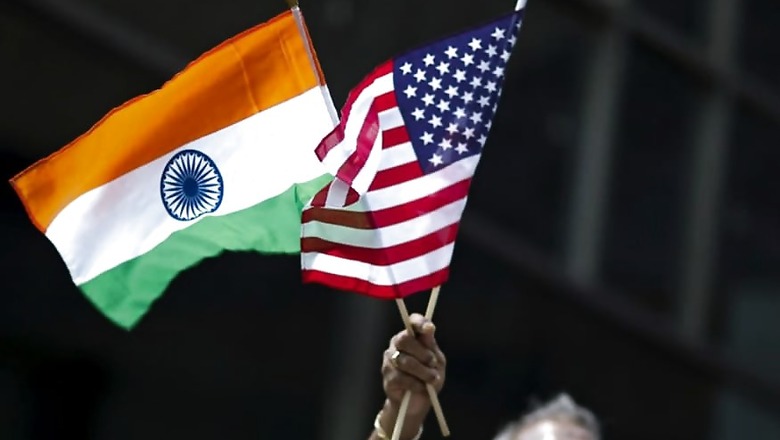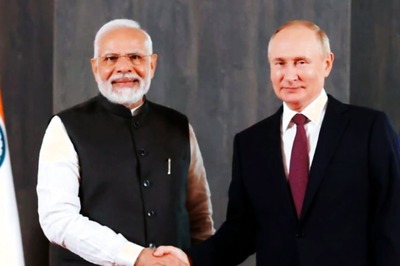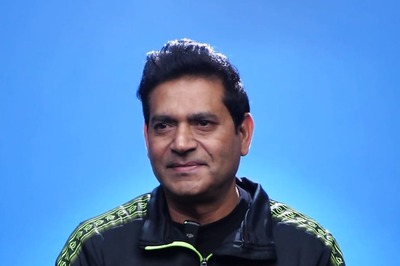
views
Washington: The bilateral relationship between India and the US, which has continuously experienced an upward trajectory for the last two decades, faces the risk of a downward spiral unless urgent steps are taken by both the countries to resolve their trade differences, an eminent Indian-American community leader has cautioned.
Trade tensions between India and the US have been rising with US President Donald Trump complaining on Twitter that tariffs imposed by New Delhi on American products were "no longer acceptable".
In March, US Trade Representative Robert Lighthizer announced that the US will terminate India's designation as beneficiary developing country under the Generalised System of Preferences (GSP) programme.
India imposed retaliatory tariffs on 28 US products including almonds and apples from June 5, after the Trump administration revoked its preferential trade privileges.
Boston-based Ramesh Kapur, president of the US India Security Council, said under the current Trump administration it was crucial for India to address the trade issues as a priority and resolve them as soon as possible.
Or else the relationship is at risk and would start drifting apart very soon, he warned.
"(Otherwise) Kashmir (issue) would start popping up. Kashmir would keep coming up (in public domain by the US)," Kapur told PTI after he and several other Indian-American community leaders had a series of meetings with lawmakers and their staffers at the US Capitol last week.
These meetings were held within days of Pakistani Prime Minister Imran Khan's three-day visit to Washington DC last week during which he met US President Donald Trump and held talks with the top Congressional leadership.
Kapur, who played a key role in the civilian nuclear deal, has worked behind the scene in several key India-centric legislations passed by the Congress in the last decade and a half.
He and several other eminent Indian-Americans had gathered in Washington DC to attend a community reception hosted by India's Ambassador to the US Harsh Vardhan Shringla at his residence last week. The community leaders used the occasion to hold meetings at the US Capitol with lawmakers and their staffers.
Having the experience of working on India-US relationship at the Capitol Hill for the last two decades, Kapur said he was surprised that the "Kashmir issue came up" during at least two of their meetings at the Hill last week.
Both of them were Republicans, he said.
"This is not a good sign," he rued, adding that in such circumstances it was unlikely to have any movement on some of the key legislations that the US India Security Council and other friends of India were perusing in the Congress.
"Everything was going in the right direction. The relationship is still good, but...if it was great, we would get our export control law passed... it would be NATO plus six," he said in response to a question.
The India-US relationship is on the verge of losing momentum, which has been the case at least since the civilian nuclear days, he warned.
"Once you lose the momentum, it is very difficult to start all over again," Kapur said, adding that the Indian government should start focusing on resolving the bilateral trade issue "immediately" starting with the Harley Davidson motorcycles for which Trump is seeking zero percent import duty.
A keen observer of how things move inside the beltway and working style of the Trump administration, Kapur argued that once trade issues are resolved, rest of the things including Afghanistan and other bilateral strategic issues will fall in place.
"Now they (the administration) think they need Pakistan for Afghanistan. They can walk away from Afghanistan tomorrow. But trade is a different story. You cannot walk away from trade," he said.
He said there was much of a serious effort put by India to resolve the trade issues.
"That's a signal (to India). China is realizing it. India should not make the same mistake that China has made (by) not compromising (on trade issues with the Trump administration)," Kapur warned.
"Once trade (issue) is resolved, everything falls in line. There is no problem in other areas," Kapur said.


















Comments
0 comment